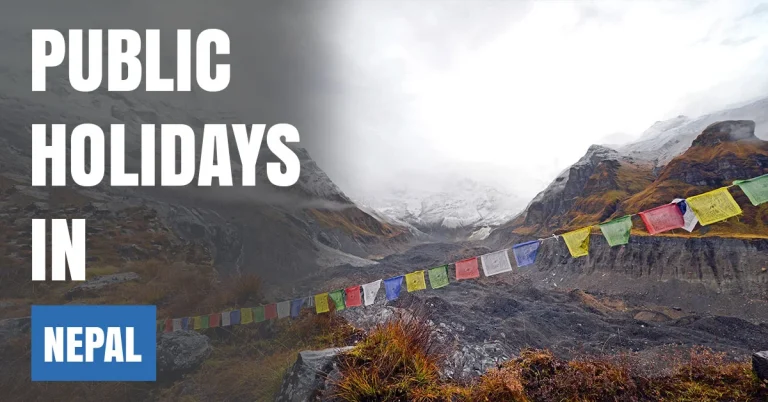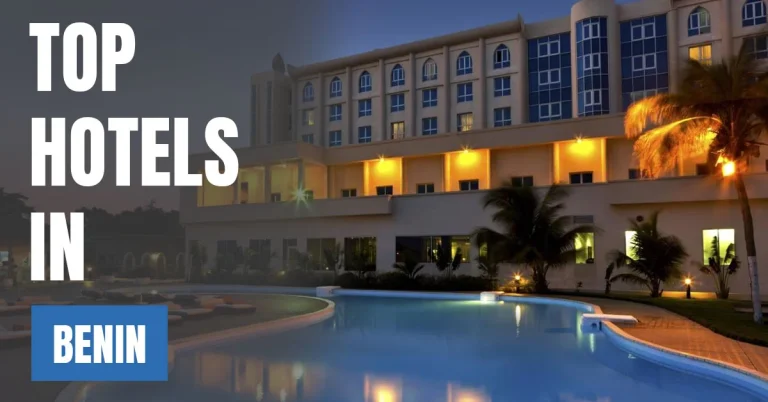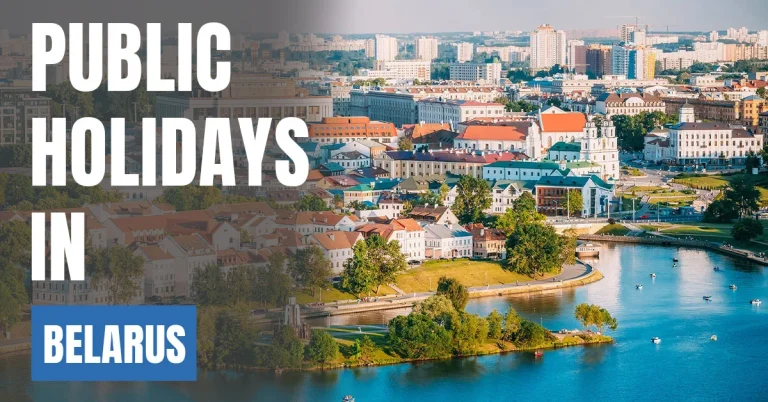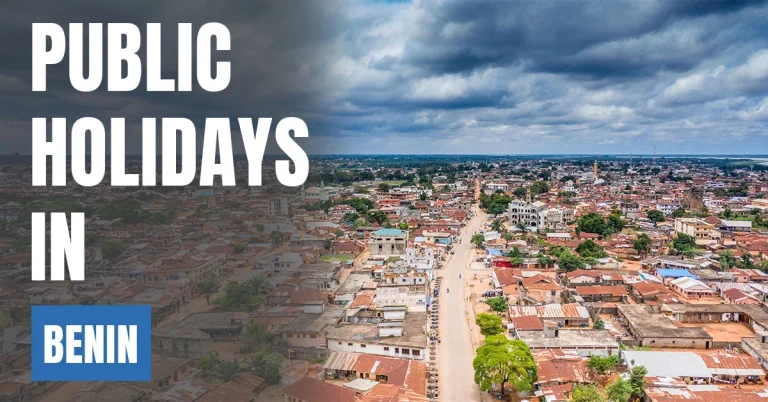Public Holidays in Bhutan 2026 – Buddhist, National & Public Holidays

Bhutan celebrates an inspiring blend of public holidays rooted in its Buddhist traditions, royal milestones, and national unity. The country’s holidays honor spiritual reflection, the monarchy, and the values of peace and happiness central to the Bhutanese way of life.
Overview of Public Holidays in Bhutan
Public holidays in Bhutan are a mix of Buddhist festivals, royal commemorations, and national events. Many are determined by the traditional Bhutanese lunar calendar, so exact dates vary annually. These holidays often include religious ceremonies, colorful processions, and community gatherings that strengthen Bhutan’s unique cultural identity.
List of Public Holidays in Bhutan (2026)
| Holiday | Date (2026) | Day | Significance |
|---|---|---|---|
| Winter Solstice (Nyilo) | January 2 | Friday | Marks the traditional New Year and the return of longer days. |
| Birth Anniversary of His Majesty the King | February 21–23 | Saturday–Monday | Celebrates the birthday of King Jigme Khesar Namgyel Wangchuck. |
| Losar (Bhutanese New Year) | March 10–12* | Tuesday–Thursday* | Marks the lunar New Year with traditional feasts, dances, and family gatherings. |
| Birth Anniversary of Third Druk Gyalpo | May 2 | Friday | Honors the Third King Jigme Dorji Wangchuck, known as the Father of Modern Bhutan. |
| Zhabdrung Kuchoe | April 30* | Thursday* | Commemorates the death anniversary of Zhabdrung Ngawang Namgyel, the founder of Bhutan. |
| Buddha Parinirvana (Duechen Nga Zom) | May 7* | Thursday* | Marks the enlightenment and passing of Lord Buddha. |
| Birth Anniversary of Guru Rinpoche | June 28* | Sunday* | Celebrates Guru Padmasambhava, who introduced Buddhism to Bhutan. |
| First Session of Parliament (Observed) | August 2 | Sunday | Commemorates the establishment of parliamentary democracy in 2008. |
| Thimphu Drubchen | September 18–20* | Friday–Sunday* | Three-day festival featuring sacred masked dances in Thimphu. |
| Thimphu Tshechu | September 21–23* | Monday–Wednesday* | One of Bhutan’s grandest religious festivals, showcasing spiritual mask dances. |
| Descending Day of Lord Buddha (Lhabab Duechen) | November 2* | Monday* | Commemorates Buddha’s descent from heaven after teaching his mother. |
| National Day | December 17 | Thursday | Marks the coronation of the first king, Ugyen Wangchuck, in 1907. |
*Dates are based on the Bhutanese lunar calendar and may vary.
List of Public Holidays in Bhutan (2025)
| Holiday | Date (2025) | Day | Significance |
|---|---|---|---|
| Winter Solstice (Nyilo) | January 2 | Thursday | Marks the traditional New Year and the return of longer days. |
| Birth Anniversary of His Majesty the King | February 21 – 23 | Friday – Sunday | Celebrates the birthday of King Jigme Khesar Namgyel Wangchuck. |
| Losar (Bhutanese New Year) | February 28 – March 2* | Friday – Sunday* | Marks the lunar New Year with family gatherings and festivities. |
| Birth Anniversary of Third Druk Gyalpo | May 2 | Friday | Honors the Third King Jigme Dorji Wangchuck, the Father of Modern Bhutan. |
| Zhabdrung Kuchoe | May 8* | Thursday* | Commemorates Zhabdrung Ngawang Namgyel, the founder of Bhutan. |
| Buddha Parinirvana (Duechen Nga Zom) | May 15* | Thursday* | Marks the enlightenment and death of Lord Buddha. |
| Birth Anniversary of Guru Rinpoche | July 7* | Monday* | Celebrates the birth of Guru Padmasambhava, founder of Buddhism in Bhutan. |
| First Session of Parliament (Observed) | August 2 | Saturday | Marks the establishment of Bhutan’s parliamentary democracy in 2008. |
| Thimphu Drubchen | September 30 – October 2* | Tuesday – Thursday* | Three-day religious festival of masked dances in Thimphu. |
| Thimphu Tshechu | October 3 – 5* | Friday – Sunday* | One of Bhutan’s largest festivals, featuring spiritual mask dances and prayers. |
| Descending Day of Lord Buddha (Lhabab Duechen) | November 13* | Thursday* | Marks Buddha’s descent from heaven after preaching to his mother. |
| National Day | December 17 | Wednesday | Commemorates the coronation of the first King Ugyen Wangchuck in 1907. |
*Dates are based on the Bhutanese lunar calendar and may vary with moon sightings.
Religious and Cultural Significance
Bhutan’s holidays blend spiritual devotion with national pride. Tshechus such as the Thimphu and Paro festivals draw crowds for masked dances known as Cham, symbolizing the triumph of good over evil. National Day and the King’s Birthday celebrate the royal family’s central role in Bhutan’s unity and development. Each holiday embodies the country’s philosophy of Gross National Happiness.
Public Observances and Closures
On official holidays, government offices, banks, and schools close throughout Bhutan. Monasteries hold special prayers, while towns host traditional music and dance. Tourist attractions remain open during many religious festivals, offering visitors a chance to experience authentic Bhutanese culture.
Frequently Asked Questions (FAQs)
How many public holidays does Bhutan have?
Bhutan observes around 12–15 official holidays yearly, depending on the lunar calendar and local festivals.
What is the most important holiday in Bhutan?
National Day (December 17) is the most important national holiday, marking the foundation of the Bhutanese monarchy in 1907.
What are Tshechus in Bhutan?
Tshechus are religious festivals featuring masked dances that commemorate Guru Rinpoche and share Buddhist teachings.
When is the Bhutanese New Year celebrated?
Losar (Bhutanese New Year) usually falls in February or March, based on the lunar calendar, and is marked by family feasts and traditional games.
Conclusion
Public holidays in Bhutan highlight the nation’s spiritual depth and royal heritage. Whether celebrating Losar, Tshechu festivals, or National Day, these holidays reflect Bhutan’s commitment to culture, faith, and collective well-being.
Also Explore: Public Holidays in Benin





